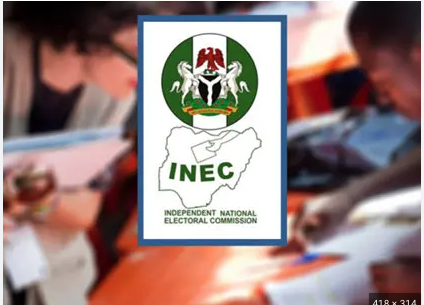Forensic Evidence Shows INEC Rigged Edo Guber Election, Alleges Martins Obono
CHIGOZIE AMADI
As the Peoples Democratic Party (PDP) challenges the result of the Edo State governorship election, in which the Independent National Electoral Commission (INEC), declared the All Progressives candidate, Senator Monday Okpebholo as the winner, the Executive Director of TAP Initiative, Martins Obono, has alleged that INEC actively participated in rigging the election.
INEC had declared Okpebholo the winner with 291,667 votes while Dr. Asue Ighodalo of the PDP was said to have come second with 247,274 votes.
Civil society organisations (CSOs), which monitored the election, faulted the outcome, declaring that the results from several polling units were altered at collation centres.
Also, Yiaga Africa, which deployed the Process and Results Verification for Transparency (PRVT) methodology for the election, involving 300 stationary and 25 roving observers, covering a representative sample of polling units across all 18 local government areas of the state, equally faulted the conduct of the poll, declaring the results as lacking credibility.
Already Ighodalo has submitted a petition to the Election Petition Tribunal headed by Justice W. I. Kpochi. The Tribunal is expected to begin sitting at the end of November.
However, speaking on ARISE News Channel’s Morning Show at the weekend, Obono presented what he described as “incontrovertible evidence” of electoral manipulation involving INEC’s own officials.
Backed by a series of documents, Obono revealed discrepancies between certified true copies (CTCs) of polling unit results issued by INEC and the versions uploaded to the agency’s official iREV polling unit result portal.
Obono, who is a lawyer, said: “What we found when we compared the CTCs issued by INEC to the results on iREV is staggering. It appears INEC printed a duplicate set of result sheets to substitute the authentic ones. These duplicates carry the same serial numbers and other security marks, yet the iREV results are signed by party agents, while the CTCs are not.”
Obono disclosed that his organisation, TAP Initiative, which advocates electoral transparency and accountability, had enlisted a forensic handwriting expert with global credentials, whose work is respected by institutions like the Nelson Mandela Foundation, who confirmed that many of these CTCs were, in fact, filled out by a single individual.
“One person sat down and forged these results. The findings shocked us. If this is what democracy has come to, then the implications are deeply disturbing,” he said.
Obono argued that the alleged manipulation marked a new, more insidious phase in Nigerian election fraud, noting that: “In the past, political parties would rig elections. Here, we are witnessing institutional rigging by the very body entrusted to oversee the process – INEC itself,” he claimed. “As custodians of our electoral records, they’ve betrayed the public trust by falsifying these documents.”
The stakes, he warned, extend beyond Edo State, adding: “If INEC’s actions here go unchecked, this could set a precedent for future elections, including the 2027 presidential race.”
Obono added that TAP Initiative is preparing to submit its findings to the Independent Corrupt Practices Commission (ICPC) and called for a sweeping investigation that spares no one, from the INEC Chairman to regional officers like the Resident Electoral Officer and the Head of Legal in Edo State .
“We cannot let this stand. Our democracy was hard-won, and we cannot allow it to be undermined by bad-faith actors. Once citizens believe they cannot remove ineffective leaders—or elect good ones—democracy itself is at risk,” Obono declared.
Beyond the duplicate result sheets, Obono also alleged widespread over-voting, inaccurate collations, and alterations on CTC result sheets. While such actions are typically associated with corrupt political operators, he emphasised that the difference in Edo’s election was INEC’s role as the main electoral offender. “We’ve monitored Nigerian elections since 2003. This is the first time we’ve seen the electoral body itself at the center of such fraud,” he said.
Obono called for a system of accountability within INEC, arguing that the 2022 Electoral Act, while stringent on political actors, does not impose similar standards on the electoral body itself.
“We need penalties for institutional misbehaviour. Those within INEC who took part in the fraud in Edo must face the law.”

























